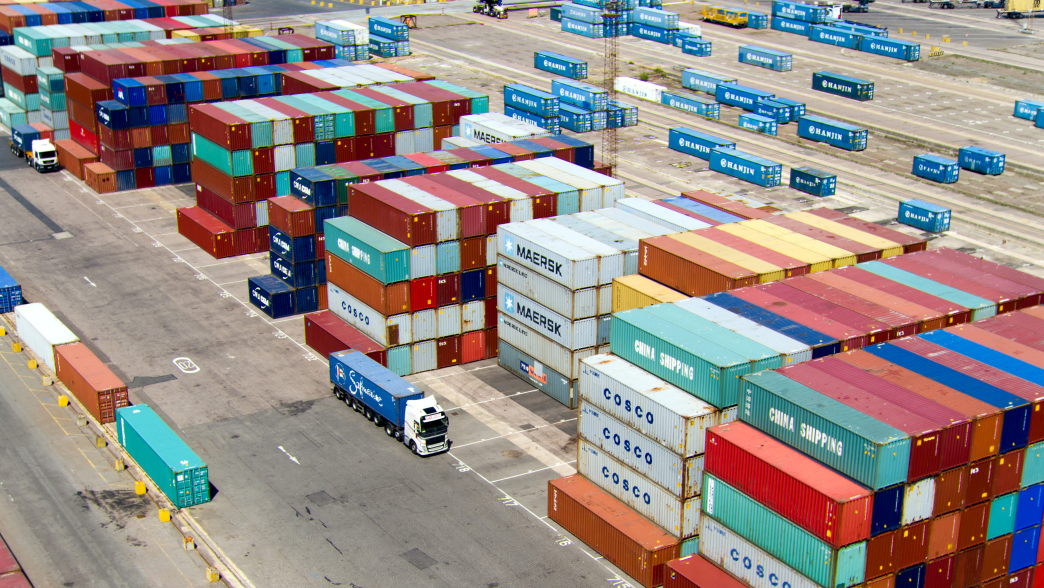The UK’s new free trade agreements mark a beginning and an end for UK trade policy
As deals with Australia and New Zealand come into force, UK trade policy is likely to become less exciting but no less productive, writes James Kane

The UK’s new free trade agreements (FTAs) with Australia and New Zealand came into force on 31 May 2023. They are the first fruits of the UK’s independent trade policy; although the UK now has over 70 trade agreements in place with countries around the world, all of the others simply replaced existing EU trade agreements. UK businesses trading with these countries have been left in much the same position as before. That won’t be the case for UK businesses exporting to Australia and New Zealand. Even if the expected value of the deals is only about 0.1% of GDP spread across the economy as a whole, there will still be big wins for some UK businesses – and losses for others (notably farmers).
Most of the UK’s target deals have been met
As well as a new beginning for UK businesses trading with Australia and New Zealand, these agreements coming into force also marks the end of an era. Back in 2017, the Institute published a paper, Taking back control of trade policy, in which we recommended that the UK should prioritise rolling over existing EU free trade agreements and then doing quick deals with Australia and New Zealand. The government agreed. It invested considerable resources between 2018 and 2020 into making sure that existing trade deals were carried over after the UK left the EU customs union. And it set its initial priorities as negotiating FTAs with Australia and New Zealand, and securing UK accession to the Comprehensive and Progressive Agreement for Trans-Pacific Partnership. The government has now achieved all of those goals.
There are still some deals left on the agenda. Negotiations for an FTA with India are still going ahead, albeit slowly and with considerable domestic political challenges on both sides. 7 Sasse T, Indian deadlock: Rishi Sunak’s mission to strike a free trade deal, PoliticsHome, 11 May 2023, www.politicshome.com/thehouse/article/indian-deadlock-rishi-sunaks-mission-strike-free-trade-deal And there are a couple of smaller countries and trading blocs, like the Gulf Cooperation Council, where an FTA in the near future may be a possibility. With only a handful of such cases, however, the future of UK trade policy is not going to be about FTAs. For one thing, the UK has already secured deals with most of its major trading partners; the US and China are the only two countries in the UK’s top 25 export markets with which the UK neither has, nor is negotiating, an FTA. Neither of those gaps is likely to be filled in the near future, given the state of US domestic politics and growing geopolitical tensions.
Trade policy is about more than FTAs
That doesn’t mean that trade negotiators at the Department for Business and Trade (DBT) should fear redundancy, but their focus is likely to change. At the highest levels, trade policy is likely to be driven increasingly by foreign policy and security considerations – and so more and more from No.10. On the ground, DBT officials will need a sharper focus on helping individual UK businesses to deal with specific obstacles to exporting. For example, they can play a useful role in negotiating with partner countries to remove or reduce the impact of specific trade barriers; help UK businesses to make use of the trade agreements that have already been signed, and thereby drive up their utilisation rates; promote exports through visits, trade fairs and other activities; and monitor partner countries’ compliance with their obligations under FTAs and World Trade Organization agreements, so they can take action against them if they default.
Doing all of this will require some changes in DBT officials’ skills profiles. When the Department for International Trade got going in 2016, its priority was to acquire trade negotiation skills as quickly as possible, by sending officials on crash courses and poaching negotiators from more experienced countries. As trade policy becomes more granular, it will be more important for trade officials to have in-depth knowledge of specific industries and closer connections with business. The merger between the UK’s trade and business departments should help with that.
And while none of these activities will ever be front page news – even making page 5 will require some creativity from the department’s press officers – there are considerable prizes at stake. Between September 2022 and March 2023, DBT estimates that it resolved market access barriers worth over £2 billion to UK businesses. 8 Department for Business and Trade, Department for International Trade, and The Rt Hon Kemi Badenoch MP, ‘Business and Trade Secretary opens up markets worth £11 million every day to UK businesses’, press release, 26 March 2023, www.gov.uk/government/news/business-and-trade-secretary-opens-up-markets-worth-11-million-every-day-to-uk-businesses If the government keeps up its current pace, there will be no need to worry about the scarcity of new FTAs on the horizon.
- Topic
- Brexit
- Administration
- Sunak government
- Department
- Department for International Trade
- Publisher
- Institute for Government